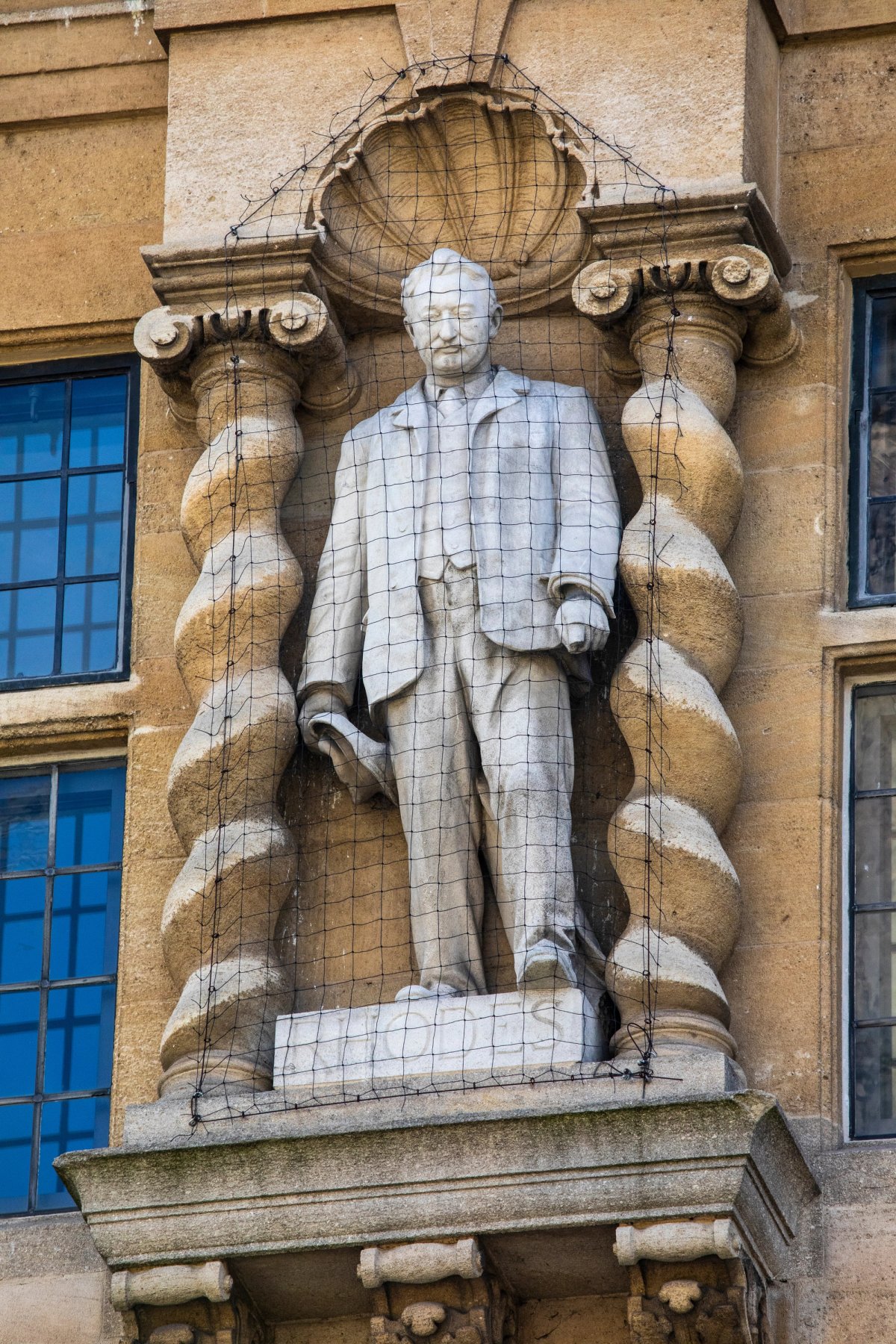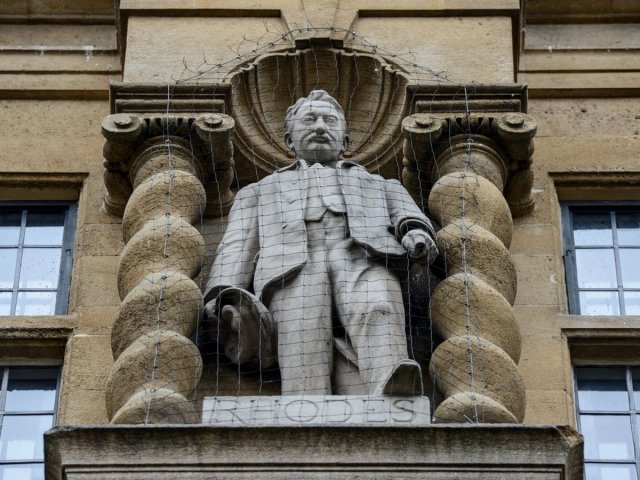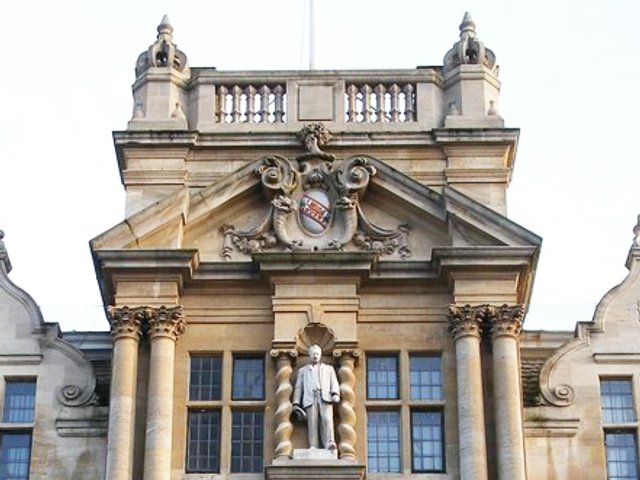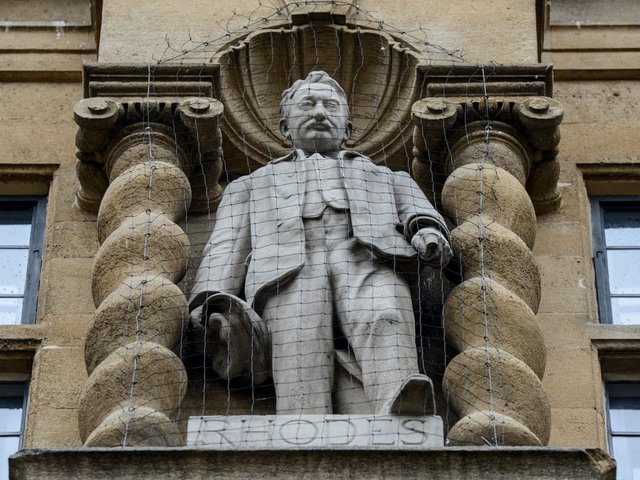Oxford University’s Oriel College has announced plans to host an exhibition “contextualising” the controversial 19th-century British imperialist Cecil Rhodes.
A statue of Rhodes by Henry Alfred Pegram, which stands on the façade of the college, has long been a flashpoint for debate around colonialism and racism, sparking protests over the past decade.
Oriel College is working with the Oxford Zimbabwe Arts Partnership to host a sculpture competition which will be held at Chitungwiza Arts Centre outside Zimbabwe’s capital city of Harare. The winning sculpture will become the centrepiece of the exhibition, which aims to continue “the college’s work in contextualising the the contested history of colonialism in Zimbabwe and legacy of Cecil Rhodes”, alongside shedding light on “the historic suffering of Zimbabweans”.
The exhibition is due to take place from September to December at Oriel College, and later at the University Church of St Mary the Virgin in Oxford. The competition brief states that the exhibition requires “a figurative or semi-abstract reflection on the impact of Cecil Rhodes’ colonial wars on the indigenous people of Zimbabwe. A piece that illustrates both the historic suffering of Zimbabweans and their survival through to the independence of Zimbabwe, conveying a sense of peace and resilience”.
Campaigners from the Rhodes Must Fall group—inspired by the toppling of the Edward Colston statue in Bristol by Black Lives Matter demonstrators in 2020—have argued that the 19th-century politician and diamond mining magnate represents white supremacy and supported apartheid-style measures in South Africa.
The Rhodes statue, erected between 1901 and 1911, was funded by a £100,000 bequest from the industrialist himself, a former student of the college. In 2021, the sculptor Antony Gormley told the Financial Times that the Rhodes statue should be turned so that it faces the wall “in shame”.
In 2021, the college said it had no plans to “begin the legal process for relocation” of the Rhodes statue following a report by an independent commission which recommended that the college should “now invest in understanding and contextualisation of its relationship with Rhodes”. More than 350 academics from across the university subsequently demanded that the statue be removed.





